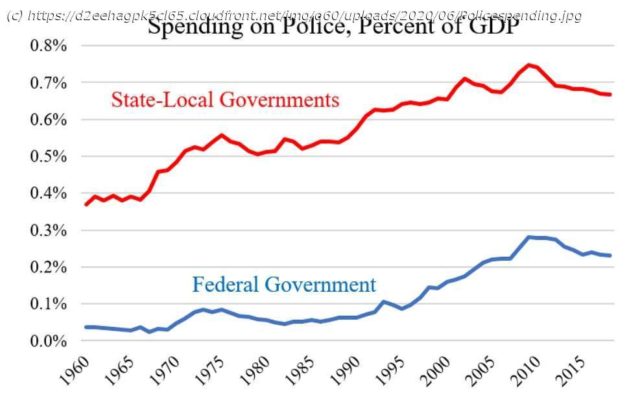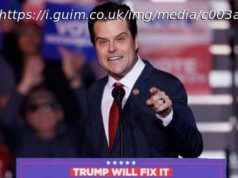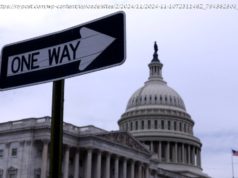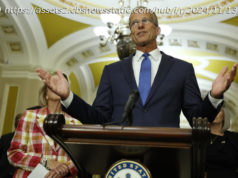Federal spending on policing has quadrupled since the 1980s, while state and local spending has increased by about one-third.
Protesters demanding policing reforms are understandably focused on increasing accountability and slashing police budgets at the state and local levels.
But the call to „defund the police“ should not ignore the large and growing presence (and expense) of federal law enforcement in recent decades—and would-be reformers should be careful not to hand-over more power to federal agencies that will be more difficult to hold accountable than local departments.
Federal police spending has skyrocketed since the 1980s, notes Chris Edwards, director of tax policy studies for the Cato Institute, a libertarian think tank. The federal government’s police budget includes grants for local and state police departments, though that is a small portion of overall spending. The vast majority funds traditional federal law enforcement offices like the FBI and Drug Enforcement Agency, as well as the Secret Service, Customs and Border Patrol (CBP), and the Bureau of Alcohol, Tobacco, and Firearms.
According to data from the U. S. Bureau of Economic Analysis, which tracks spending on all government programs, federal police spending averaged about 0.05 percent of gross domestic product (GDP) during the 1980s, and climbed to about 0.






